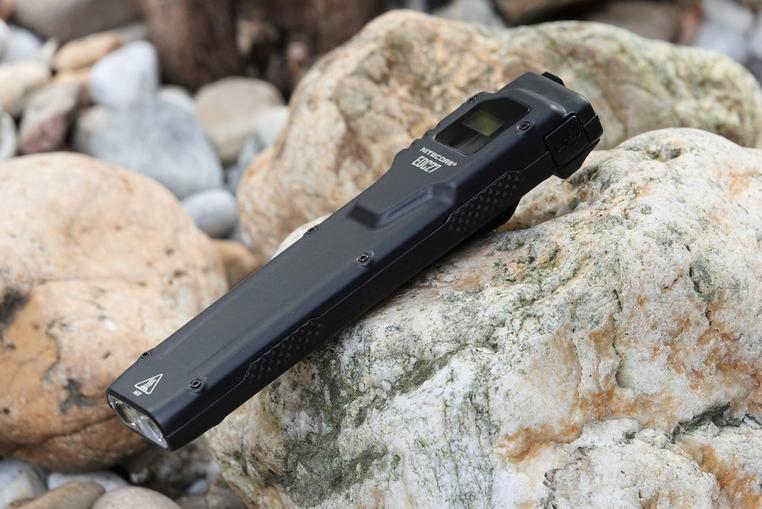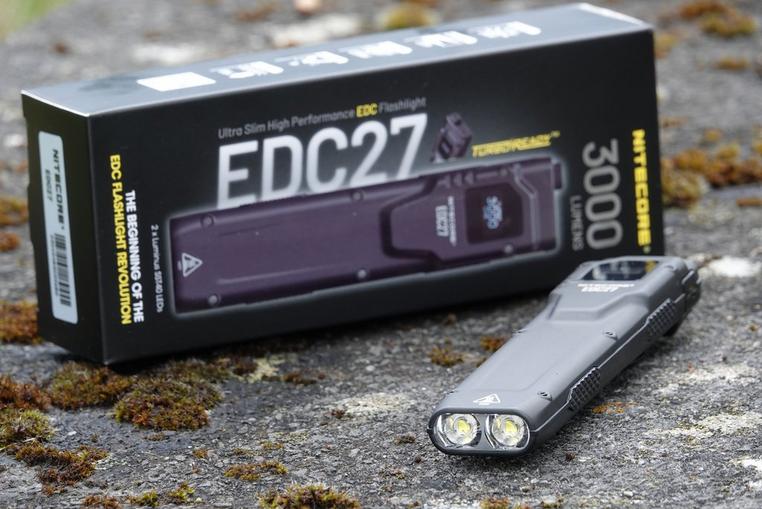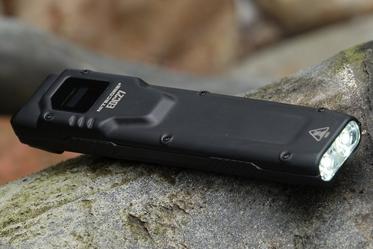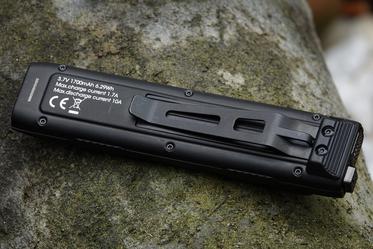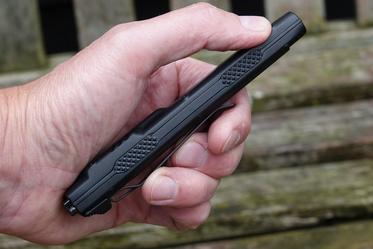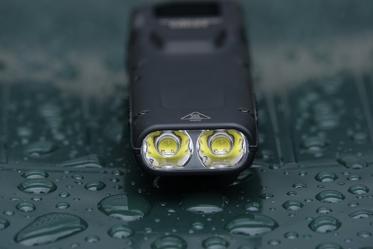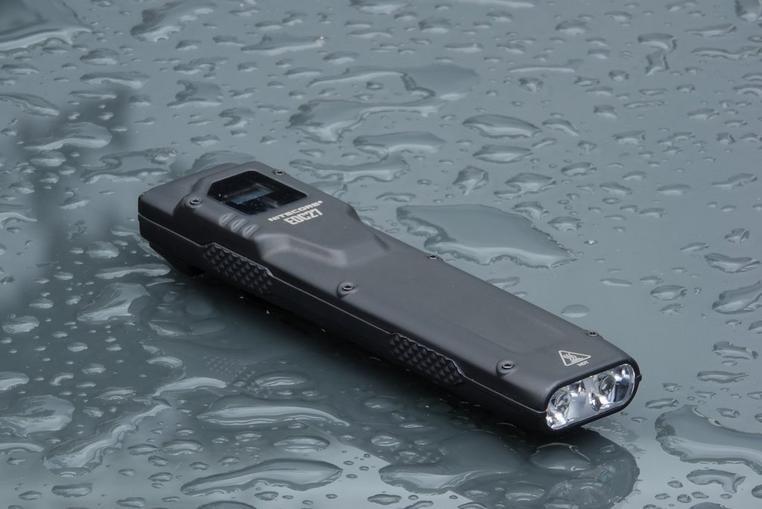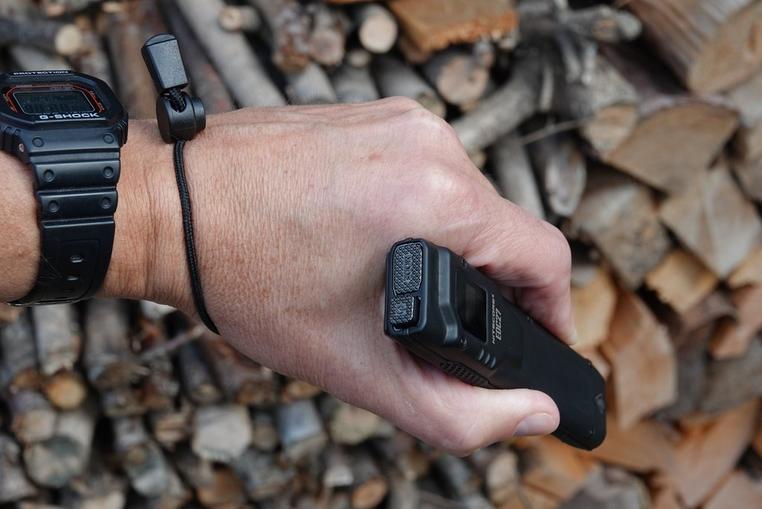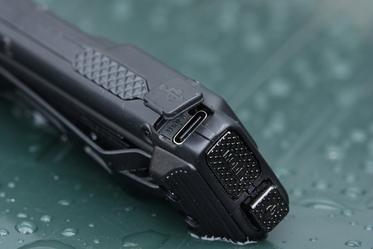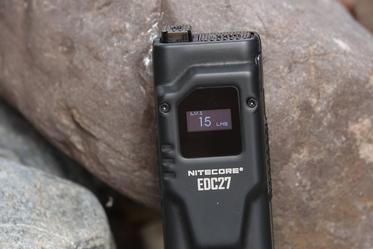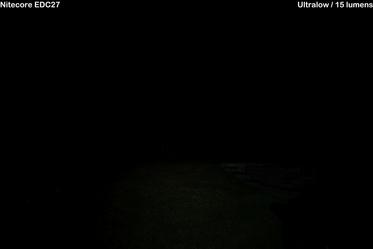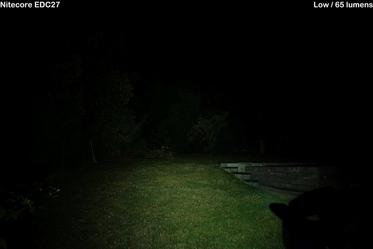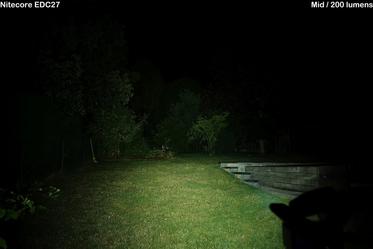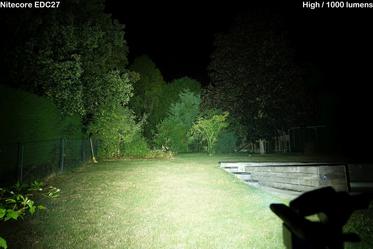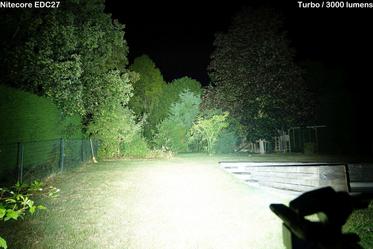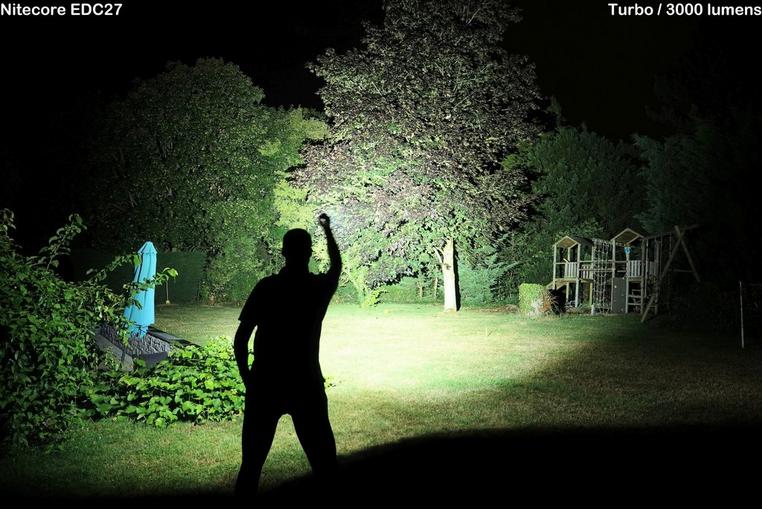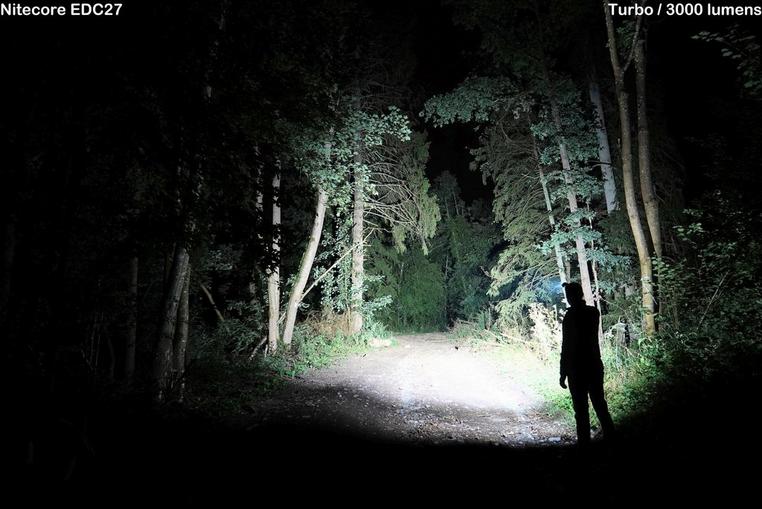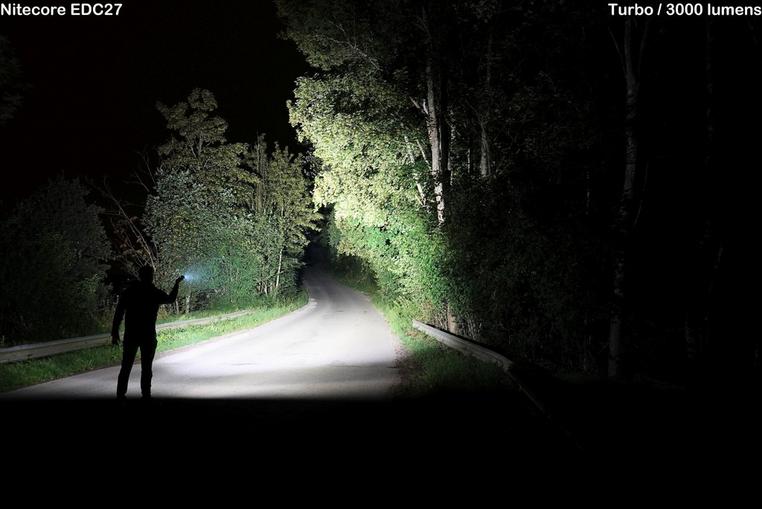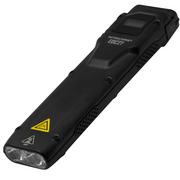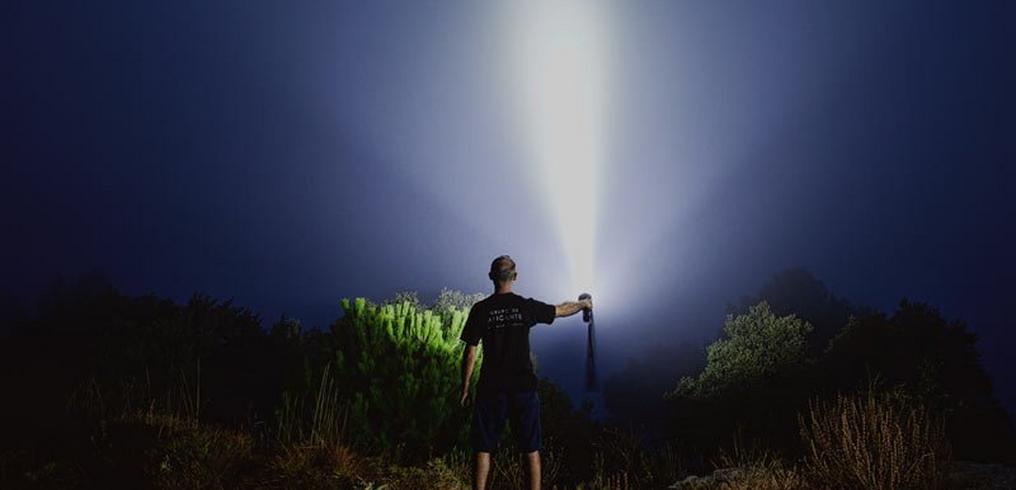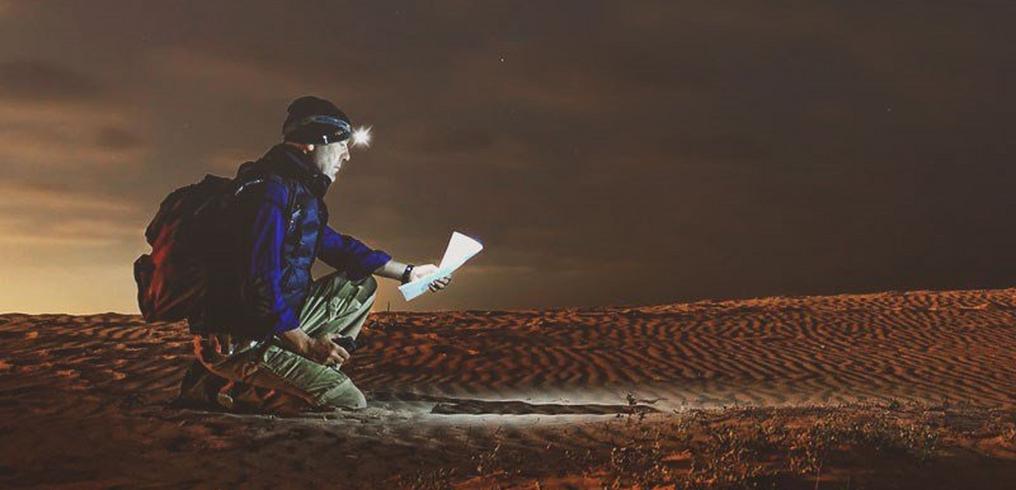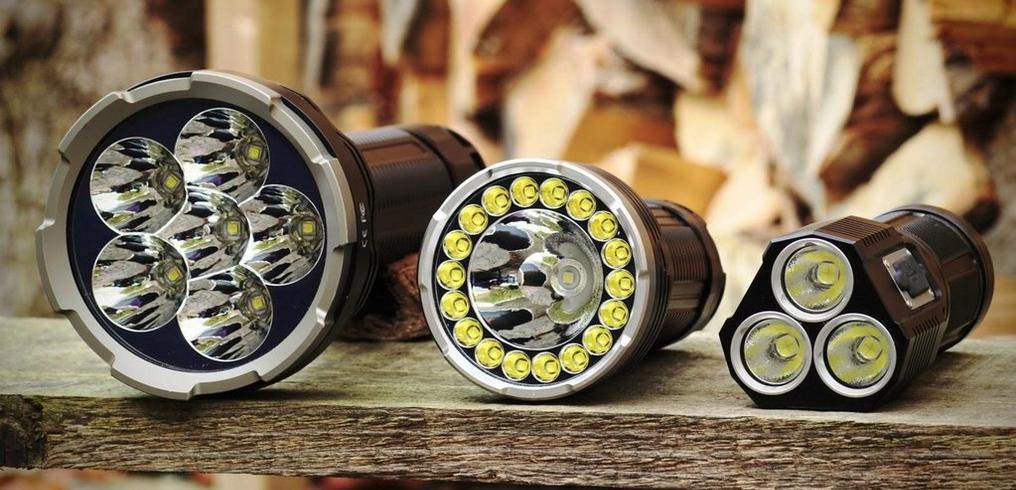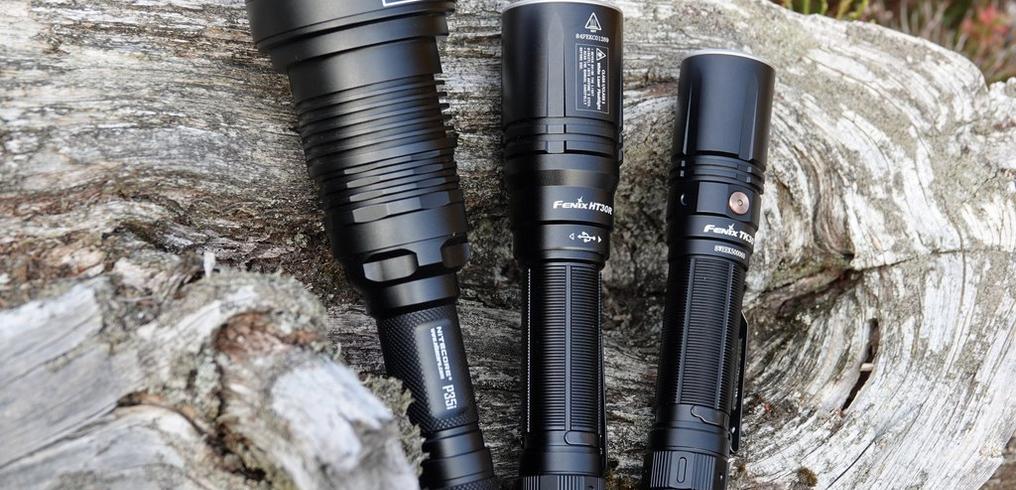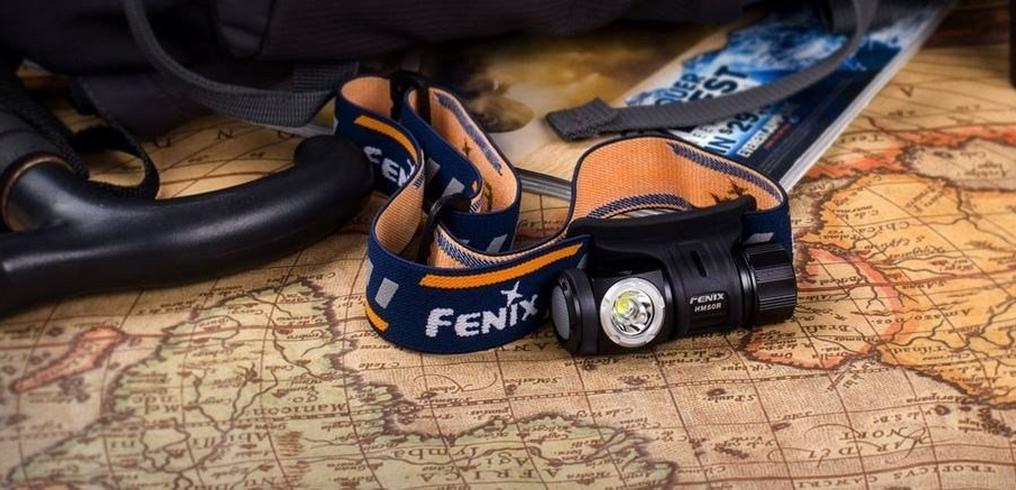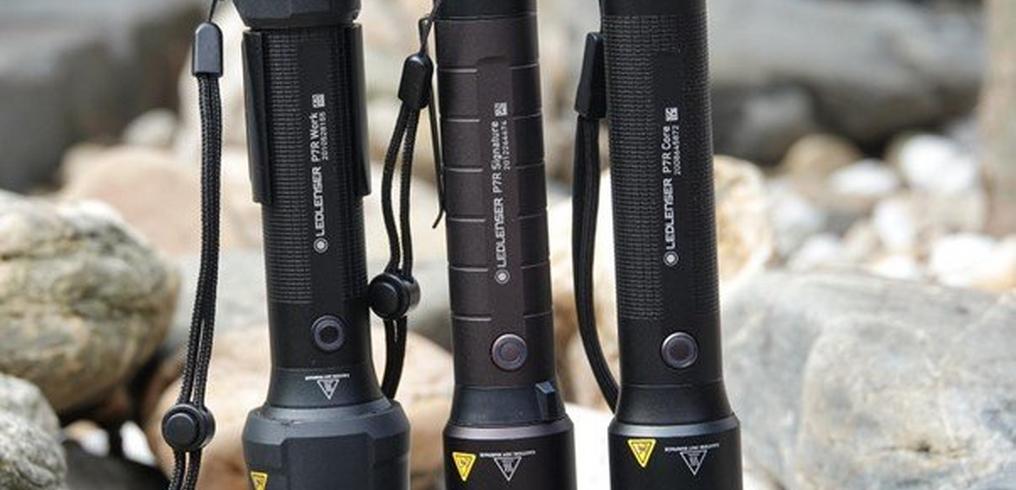Nitecore EDC27 | Expert Review by Koen van der Jagt
With the new EDC27, Nitecore proves once more that they are not afraid to release a daring design. This powerful EDC flashlight is proving to be a big hit, given the global sales and various awards the EDC27 has won. What is it that makes this flashlight so special? I will answer that question with this review!
Contents
First impressions
The EDC27 comes in a nice cardboard box. Open it carefully, because it's easy to tear the cardboard flaps. The contents of the box are sufficient, but not excessive. The flashlight doesn't come with a holster, which I think is a shame. The same can be said about the lack of an adapter for charging; true to current trends, the box only contains a charging cable.
The EDC27 is an eye catcher, I've never seen a flashlight with a design quite like this one. The 'flat' design stands out among the usually round models. Still, you can find some similarities with the TINI2. I have to admit that I needed some time to get used to this design and personally I'm more fond of the 'traditional' look of a round flashlight. But when you look closer at this flashlight, you'll discover interesting details. For example, the flashlight is made up of two halves that have been screwed together. On the 'seam' between these halves you'll find two 'islands' with a coarse texture. As a result, you'll have a good grip of the flashlight. Perhaps the most striking feature of this flashlight is its OLED screen, which is something we've seen before with the Tiny Monster series. This screen is a bit higher up on the flashlight, also preventing it from slipping out of your hands. The large pocket clip covers about two thirds of the back and makes for a strong attachment option to carry the EDC27. Next to the clip is some information about battery capacity and charging voltage; I always take care not to deviate too much from the prescribed amps when charging. The matt-black finish ensures you won't leave any fingerprints, keeping the flashlight looking pristine. The design looks great! Just like the TINI2, the EDC27 features a double LED behind a plastic lens that is less scratch resistant than glass. On the back you'll find the two buttons, one of which is more recessed into the torch's body while the other clearly sticks. The coarse texture of the buttons should make it easy to find them in the dark. Despite the visible torx screws, you should not open the flashlight as this would affect the IP54 protection and the built-in battery cannot be replaced anyway.
The EDC27 has a quirky design and the overall build feels sturdy. However, I did notice some traces of use on the anodizing after a few weeks.
When and how
The EDC27 is designed to illuminate the largest possible area during daily use. The flashlight is the perfect size to carry with you and it has a good variety of light modes for everyday use. With this Nitecore you will get the output of a medium-sized torch and the convenience of a compact flashlight. Yet again, it can't do everything: the EDC27 can't reach very large distances, and it also lacks a really low light mode. In spite of these little drawbacks, the EDC27 has a lot to offer, even when you find yourself in a threatening situation, thanks to the instantly available strobe mode.
The Nitecore EDC27 in terms of controls and comfort
One thing is certain: this flashlight is the biggest 'EDC' I've ever used, and it's definitely larger than a keychain flashlight or one that fits in the coin pocket of your jeans. On the other hand, the EDC27 does represent an exception in its length class that far exceeds its competitors in terms of comfort. The torch feels great in hand and the clip and its shapes and textures ensure good grip. The wrist strap is adjustable, so you'll never lose your flashlight.
The same little screen has been used by Nitecore on several models for years, and it definitely adds value to the EDC27 as well. All relevant info is displayed, including battery voltage, burn time and light mode. The screen also comes in handy during charging, because you can see whether the battery is back at its maximum 4.2 volts. This information is displayed both numerically and with a status bar.
The EDC27 has a main button and a mode button. Both buttons can be pressed either halfway or fully down, with the difference being that you can 'lock' the main button. In practice, this turns out to be a great solution to keep all functions under control. The main button is for the basic functions: on/off and the four standard light modes. By pressing the button down all the way, you switch on the last mode used. By pressing the button down halfway, you switch through the four light modes. This system is something I had to get used to, because it's tempting to use the mode button to choose the brightness. But it's all done with the same button! It might take some practice to differentiate between pressing the button down fully or halfway, but it's easy to get the hang of. From standby, the button has two more functions: half press and hold for direct-ultralow (momentary on) and shortly press the button down halfway to activate the display.
The direct mode button is lower inside the flashlight's body, but is still easy to use. This button allows you to activate the powerful modes of this flashlight: turbo and strobe mode. Half press for turbo, full press for strobe. You cannot lock these modes, and they switch off as you release the button. Both modes can be used from standby or with the flashlight switched on. To protect the housing and battery, Nitecore has built in a limit on the turbo mode. The display shows a status bar that runs down fairly quickly; after just 15 seconds, the light will decrease its output and go back to the high mode at 1000 lumens or a lower mode. You can use the turbo again as soon as the body of the flashlight has cooled down. In case of overheating, the light will also decrease its output until it returns to a safe temperature. The EDC27's long body ensures good heat dissipation. You can tell by how long it can operate at high light modes for much longer than compact flashlights. Another special feature is the built-in proximity sensor, which I have so far only come across on larger flashlights. The flashlight will automatically decrease its output if it comes too close to an object while hot from being in High mode or Turbo mode. This is a very practical feature that prevents you from blinding yourself or accidentally burn a hole in your clothing. Speaking from experience, I can tell you it's better to prevent this.
Despite good protection against accidental switch-on (this risk is highest with a side button), the EDC27 also has a double lock-out function. With lock-out 1 (the display shows this) the main button is locked, and with lock-out 2 you make both buttons non-active. I think this is a nice solution. You can lock the button that sticks out the most, but still use turbo and strobe modes. You turn on the lock-out function as follows: when the torch is on, press the main button down fully and hold it until you see the lock with a 1 on the display or if you press down longer, the lock with a 2. When released, the EDC27's controls will be locked (either one button or both). Unlocking works in a similar way: click the button twice in quick succession and then hold it down.
The EDC27 feels great in hand, and Nitecore has managed to make the controls easy to use. You'll also be able to instantly access the highest, lowest and panic modes. In my opinion, an EDC lamp with controls on the back is perfect because the risk of accidentally switching on is much higher with a side button. In addition, the EDC27 has a smart lock-out function for extra protection.
This is what I love about the Nitecore EDC27
The great power of this light is a very strong selling point. The controls also deserve praise and I would also like to mention the good lock-out functions. It probably won't happen very often that the EDC27 accidentally turns on in your pocket, but if it does, this flashlight also has built-in 'proximity protection'.
This could be better
I've said it before in my reviews and I will repeat it here: I am of the opinion that an EDC flashlight should have a moonlight mode. Unfortunately, the Nitecore EDC27 does not come with this feature. The lowest mode is 15 lumens, which is quite bright and can be annoying when you're sharing a tent. Moreover, I would also like to see the plastic lens replaced with a glass; it's more scratch resistant which is very practical for a flashlight you'll be carrying in your pocket.
Value for money?
The Nitecore EDC27 costs about 100 euros. That is quite a hefty figure for an EDC flashlight. However, it is actually a mid-range flashlight that is easier to carry than its competitors thanks to its slender shape. Moreover, it comes with a good collection of features. When you look at it this way, the price is not disproportionate.
My conclusion
I think it won't be a surprise that I'm very positive about this flashlight. It offers extraordinary performance in terms of output, range and endurance, especially considering its size. These features plus the great interface and informative screen make this flashlight an interesting option for those looking for a powerful flashlight for EDC use. The turbo mode is available only briefly, but the high setting does last longer, also thanks to the body's good heat dissipation. The quickly accessible strobe mode provides an extra bit of safety in a dark forest or alley. The lack of a really low mode is a shame though, 15 lumens gives more light than you would need in a dark tent or for reading. Also bear in mind that the turbo mode is not suitable for longer use, you simply need a larger housing and more powerful battery for that.
One more thing
A fun thing about this kind of flashlight, the EDCs, is that you can personalize them with a paracord lanyard. It's stylish and practical!
Last, but not least: the beamshots
Time to show off everything the EDC27 can do! This flashlight has a large hotspot surrounded by a powerful but evenly distributed residual light (also called spill). When I look at the light profile during the day, I can already predict what it will do in the dark: a wide beam with an impressive range. It is noticeable that the light profile, when shining on the ceiling for example, is not completely round like most torches. You'll also see this when using the flashlight outside, but it did not bother me. The colour is nice and white, and doesn't contain a blue or green hue. Fortunately, hue deviations are becoming less common with the current generation of flashlights.
I found it appropriate to test an EDC in a garden. You can immediately tell that this relatively small torch can illuminate a large area. We'll start with the five brightness levels; the ultralow mode is barely visible in the picture here but still gives quite a lot of light indoors.
In the photograph below you'll see how the EDC27 performs while held in hand in the same garden. In this picture, you can see that the light profile on the edge has some deviations in shape. You can also see that (damp) grass has quite a reflective effect when using a broad-beam (flood) light.
I also tested this flashlight in the Ardennes. The dark environment in combination with the large pine trees really show off this flashlight's capabilities.
The EDC27 gives you a great visibility on dark roads. Thanks to the relatively broad beam, you won't miss any visual cues and the reach is impressive considering the flat reflectors.
Koen van der Jagt
Ever since he could walk Koen has been interested in lights, wires and batteries. As a child he was always working with dyno torches, bike lights and electrical boxes. The krypton and halogen lights were replaced by LED lights. A couple of years ago he discovered the ‘professional’ stuff. His first brands were Led Lenser and Fenix. Photography is also one of his hobbies. In addition to nature and meteorology Koen loves to show others what a light can do and what its beam looks like at night. Koen’s reviews can often be found on forums such as candlepowerforums.com and taschenlampen-forum.de. Throughout the years Koen has collected lights in practically any category: from small and compact to enormous powerhouses.

